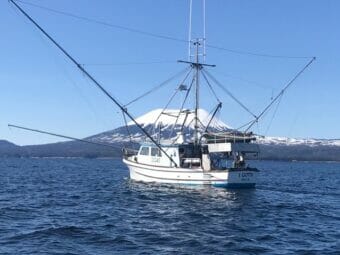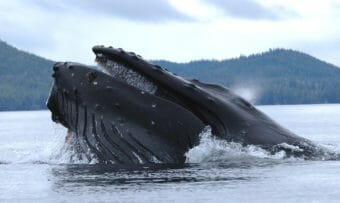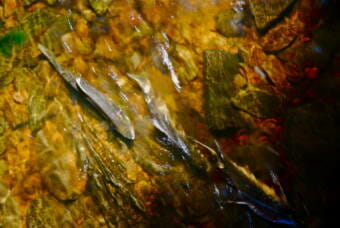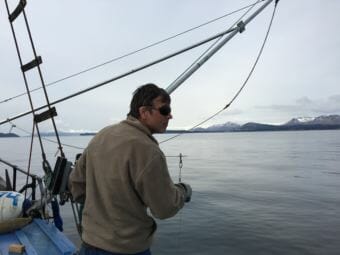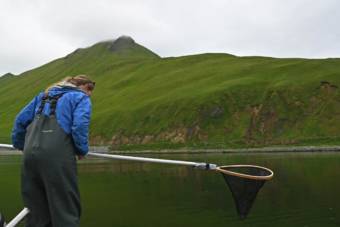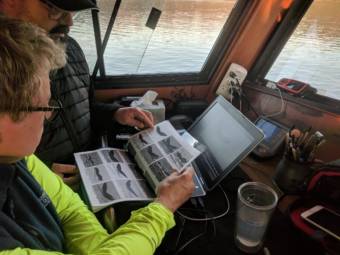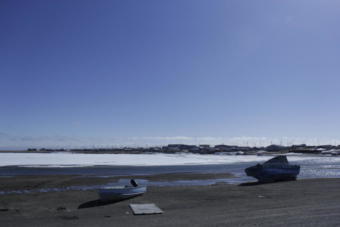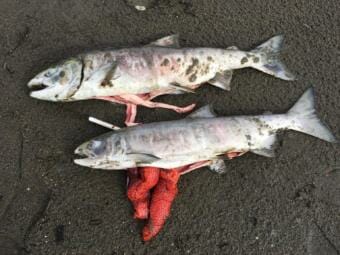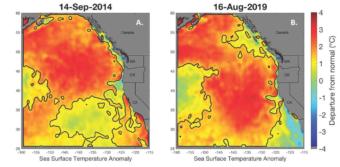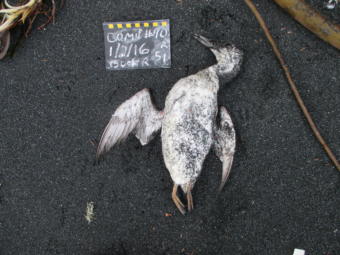Two new citizen science projects will help troll fishermen take the lead in gathering data about how the waters they depend on are changing.
"The Blob"
Southeast humpback populations are improving, but the fallout of the Pacific marine heat wave lingers
Things are looking up for Southeast Alaska’s humpback whales in the years following the Blob, according to a new update from Glacier Bay National Park.
For Southeast pink salmon, it’s back to the even-year blues
The Southeast harvests in both 2020 and 2018 were around 8 million fish — among some of the lowest in decades.
Massive algae bloom in the Gulf of Alaska could be good for marine life
This year, researchers recorded the biggest bloom they’ve ever seen.
Harmful algal blooms can be lethal for humans. Scientists wonder if they cause seabird die-offs, too
USGS biologist Sarah Schoen said the project started about five years ago when a major heat wave, known as “the blob,” hit the ocean. Around the same time, there was a die-off of an estimated million common murres — a northern seabird — from Alaska down to California.
Pacific heat wave had lasting impacts on Gulf of Alaska marine species
Some fish, like certain populations of herring, are rebounding more rapidly. But taken altogether, the data paints the picture of an ecosystem still reeling from a warming ocean.
Pink salmon could prosper in warmer Arctic, new study finds
A new study bolster reports by Alaska subsistence fishermen that the species’ numbers have been increasing as the Arctic warms at more than double the rate of the rest of the globe.
Marine heatwaves will cripple salmon, cod and pollock at twice the rate previously predicted, study says
As these heatwaves continue, they may have far more devastating implications to fisheries than previously predicted.
A second ‘Blob’ marine heat wave has disappeared, but the warming trend will continue, scientists say
The first “Blob” decimated fisheries, caused a mass seabird die-off and spurred toxic algal blooms up and down the coast. As Alaska braced for the second heat wave, it disappeared — at least for now.
New study links 2015 seabird die-off to food scarcity during the ‘Blob’
Alaskans may remember a few years ago, when huge numbers of common murres, a type of northern seabird, were washing up dead onshore.
